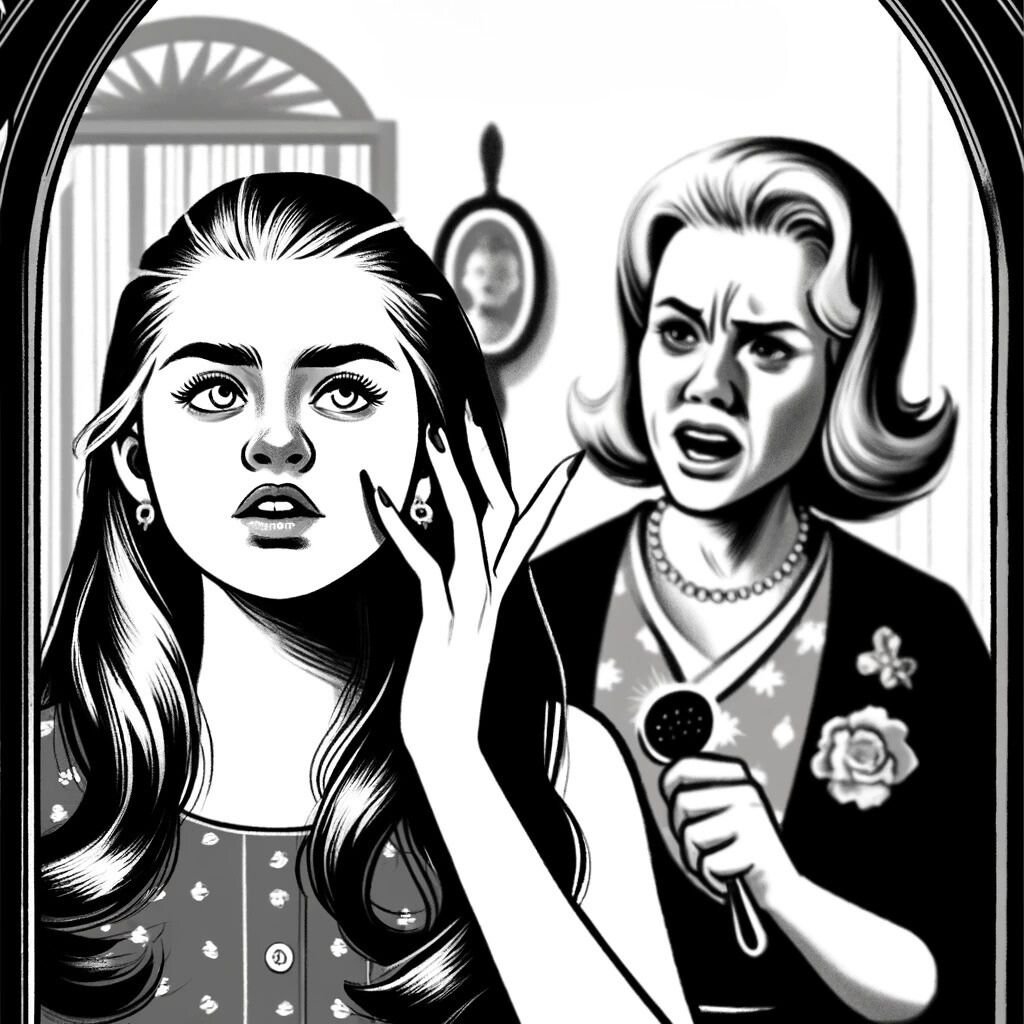You know when you’re in the hands of a great author. You can feel it in the words, how he or she weaves conflict into all the crevices. Yesterday, I read a short story by Joyce Carol Oates that exhausted me in a good way. In ten short pages, Oates had her way with me.
The story was called Where Are You Going, Where Have You Been? It’s a tale of a beautiful girl, completely lost in her vanity, who gets hunted by a smooth-talking, terrifying devil. Within the first few sentences, I knew I was in the hands of a great author. Here’s the first paragraph:
“Her name was Connie. She was fifteen and she had a quick, nervous giggling habit of craning her neck to glance into mirrors or checking other people’s faces to make sure her own was all right. Her mother, who noticed everything and knew everything and who hadn’t much reason any longer to look at her own face, always scolded Connie about it. “Stop gawking at yourself. Who are you? You think you’re so pretty?” she would say. Connie would raise her eyebrows at these familiar old complaints and look right through her mother, into a shadowy vision of herself as she was right at that moment: she knew she was pretty and that was everything. Her mother had been pretty once too, if you could believe those old snapshots in the album, but now her looks were gone and that was why she was always after Connie.”
The first part of a story is called “exposition.” It’s the point where the author introduces the characters, their situations, and what we need to know in order to understand the plot. In one short paragraph, Oates gives us Connie and her mother, puts a huge amount of conflict between them, and also gives us a reason for it. At this point, I was already scared for Connie. I just had a feeling something bad was coming for her, and I was right.
If you’re interested in reading the story, North Dakota State University has posted a pdf of it on their site. It’s worth a read and will knock you on your butt. Here’s the link: https://www.ndsu.edu/pubweb/~cinichol/CreativeWriting/323/WhereAreYouGoing.htm
Until tomorrow, read slowly – take notes – apply the ideas.
-Eddy

Published by